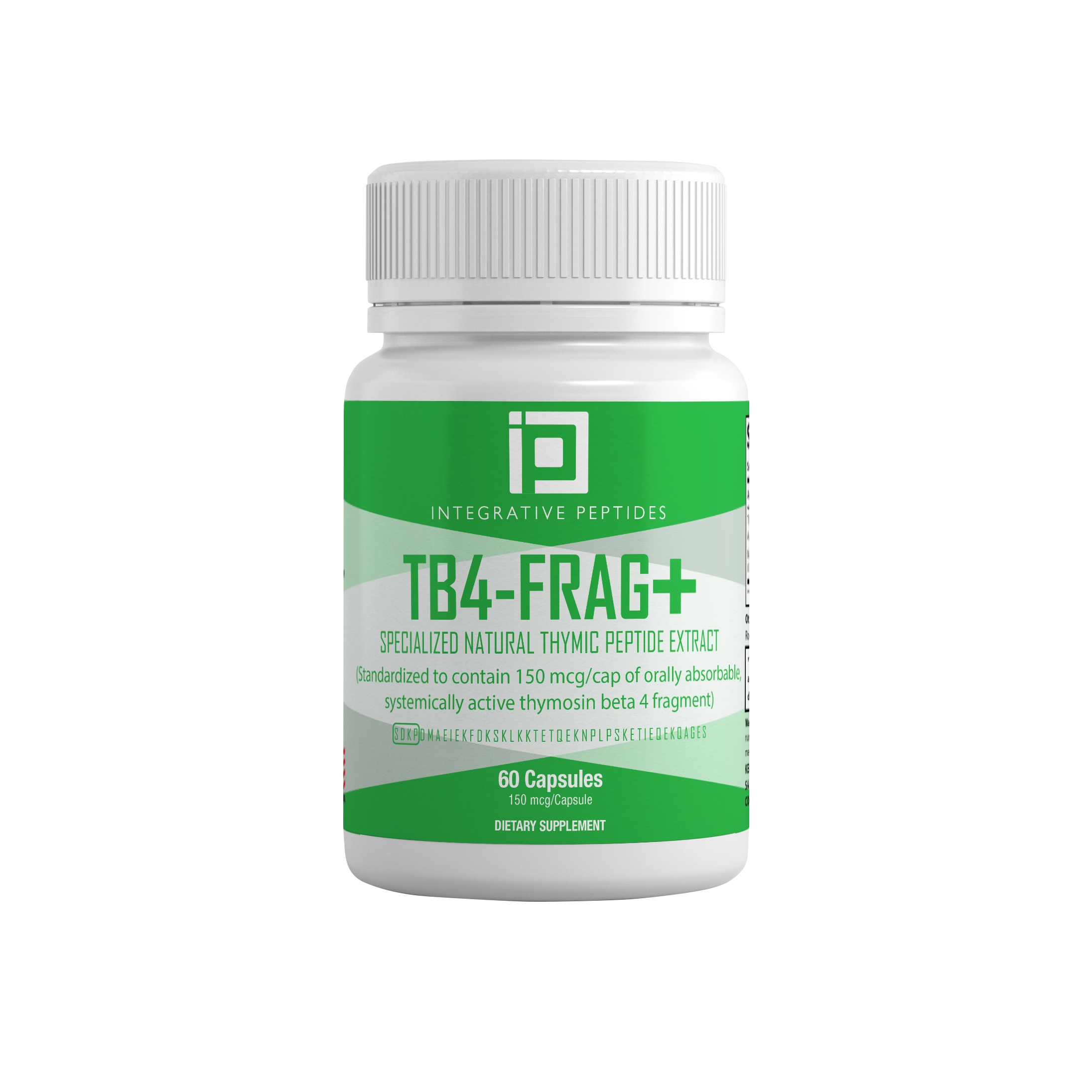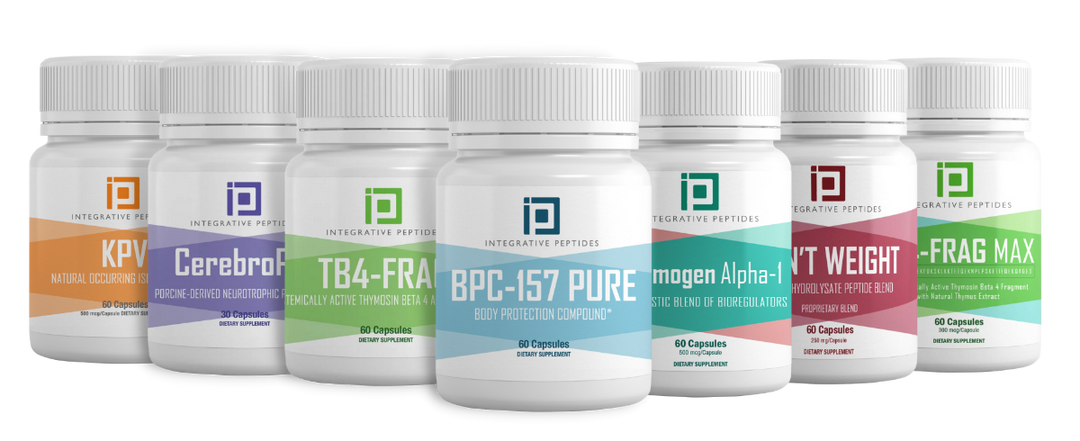Thymosin Beta 4 (TB4) is emerging as a critical player in the realm of medical research and therapeutic applications, captivating the attention of healthcare professionals and consumers alike. As our understanding of this multifaceted peptide grows, so too does its potential for promoting healing and recovery within the body. This article delves into the biological role of Thymosin Beta 4, exploring its benefits, the latest research findings, and its therapeutic uses, paving the way for groundbreaking advancements in health and recovery.
Key Takeaways
- Thymosin Beta 4 is a peptide that plays a crucial role in tissue repair and regeneration.
- Research suggests that Thymosin Beta 4 may enhance healing processes in various injuries and conditions.
- Current studies are exploring its potential in treating chronic diseases and inflammation.
- Thymosin Beta 4 shows promise in therapeutic applications, particularly in sports medicine and regenerative therapies.
- Future research could expand the understanding and application of Thymosin Beta 4 in medicine and recovery.
Introduction to Thymosin Beta 4: What It Is
Thymosin Beta 4, often abbreviated as TB4, is a potent peptide that plays a crucial role in various biological processes within the human body, primarily known for its involvement in tissue repair and regeneration. This naturally occurring protein, composed of 43 amino acids, is abundantly found in the thymus gland and other tissues, where it is essential for maintaining cellular functions and promoting wound healing. Research has unveiled that thymosin beta 4 is not only instrumental in angiogenesis—the formation of new blood vessels—but also in reducing inflammation and modulating the immune response, making it a significant player in the body’s recovery mechanisms. Notably, recent studies have positioned thymosin beta 4 as a promising candidate for therapeutic applications in conditions such as heart disease, chronic wounds, and connective tissue disorders, highlighting its potential to enhance recovery post-surgery and improve the outcomes of various medical interventions. As today’s medical research delves deeper into the multifaceted roles of thymosin beta 4, the future looks promising for its broader applications in regenerative medicine, possibly paving the way for innovative treatments that harness its unique properties to foster healing and promote optimal health.
The Biological Role of Thymosin Beta 4 in the Body
Thymosin Beta 4 (TB4) is a naturally occurring peptide composed of 43 amino acids, identified for its significant roles in the modulation of cellular functions, particularly in the context of healing and regeneration. Within the human body, TB4 is predominantly found in various tissues, including the immune system, where it plays a crucial part in promoting cell migration and tissue repair. As research continues to unveil its properties, potential benefits of Thymosin Beta 4 have emerged, highlighting its capacity to accelerate wound healing, reduce inflammation, and facilitate recovery from injuries. Notably, current medical studies are exploring its applications in conditions such as cardiovascular disorders, traumatic brain injuries, and even chronic wounds, thus presenting a promising frontier in regenerative medicine. The growing body of evidence suggests that TB4 could be a beneficial adjunct to traditional therapies, although more comprehensive clinical trials are needed to validate its efficacy and safety for widespread use. As the scientific community delves deeper into the therapeutic applications of Thymosin Beta 4, its future looks promising, poised to enhance treatment strategies across a variety of medical disciplines.
'The greatest discovery of my generation is that a human being can alter his life by altering his attitudes.' - William James
Potential Benefits of Thymosin Beta 4: Healing and Recovery
Thymosin Beta 4 (TB4) is emerging as a significant player in the realm of healing and recovery, drawing attention for its multifaceted therapeutic benefits. Research suggests that TB4 plays a critical role in tissue repair and regeneration, particularly following injury or surgery, by promoting cell migration and proliferation. This peptide not only enhances the healing processes of various tissues, including skin, muscles, and even cardiac cells, but also exhibits anti-inflammatory properties that could reduce recovery times and improve overall rehabilitation outcomes. Furthermore, TB4's ability to stimulate angiogenesis— the formation of new blood vessels— further contributes to its potential in enhancing recovery from injuries and surgeries, making it a promising option for consumers seeking efficient recovery solutions. As more studies unfold, the understanding of thymosin beta 4 as a natural facilitator of healing continues to expand, potentially leading to greater applications in sports medicine, plastic surgery, and other fields where recovery is paramount.
Thymosin Beta 4 in Medical Research: Current Findings
Recent findings in medical research have highlighted the multifaceted role of thymosin beta 4 (TB4), a peptide involved in various cellular processes, including wound healing, inflammation modulation, and tissue regeneration. Studies have demonstrated that TB4 promotes angiogenesis, the formation of new blood vessels, which is crucial for recovery from injury and for the regeneration of damaged tissues. Furthermore, research has shown that TB4 possesses anti-inflammatory properties, potentially offering therapeutic benefits in chronic inflammatory conditions such as arthritis and cardiovascular diseases. Clinical trials are actively exploring its application in regenerative medicine, particularly in enhancing cellular repair mechanisms and improving outcomes in patients with ischemic injuries. With these promising insights, TB4 is garnering attention as a significant biomolecule in the development of innovative treatment strategies, making it an area of great interest for both researchers and healthcare practitioners.
Therapeutic Applications of Thymosin Beta 4: Conditions and Uses
Thymosin Beta 4 (TB4), a small peptide predominantly expressed in various tissues, exhibits a range of therapeutic applications due to its potent regenerative and anti-inflammatory properties. This peptide has garnered significant interest in the medical community for its potential in treating a variety of conditions, including chronic wounds, cardiovascular diseases, and even neurological disorders. Research indicates that TB4 not only enhances cell migration and wound healing but also plays a critical role in reducing inflammation and promoting the survival of cells under stress, such as in heart injury or tissue damage. Furthermore, its application extends into the realm of ophthalmology, where TB4 is being investigated for its role in treating conditions like dry eye syndrome and corneal healing. By harnessing the unique mechanisms of action of Thymosin Beta 4, clinicians are exploring innovative therapies aimed at improving patient outcomes in several chronic conditions, making this peptide a promising contender in regenerative medicine.
Conclusion: The Future of Thymosin Beta 4 Research and Application
In conclusion, the future of thymosin beta 4 research and application holds great promise as ongoing studies continue to uncover its vast therapeutic potential. As a peptide known for its remarkable regenerative capabilities, thymosin beta 4 is being investigated for a range of medical applications, from wound healing and tissue repair to its potential role in treating various chronic conditions such as cardiovascular diseases and autoimmune disorders. Consumers can anticipate a growing interest in thymosin beta 4 as clinical trials progress and showcase its efficacy and safety profiles, which may soon translate into market-ready treatments. Furthermore, advancements in biotechnology could facilitate the development of innovative delivery methods for thymosin beta 4, enhancing its accessibility and effectiveness while ensuring compliance with rigorous health standards. As researchers unravel more about this multifaceted peptide, the potential for thymosin beta 4 to revolutionize the landscape of regenerative medicine becomes increasingly evident, promising a future where its applications could significantly improve quality of life for many.
Frequently Asked Questions
What is Thymosin Beta 4 and what role does it play in the body?
Thymosin Beta 4 is a peptide that plays a significant role in cellular functions, including cell migration, tissue regeneration, and inflammation regulation. It is primarily known for its ability to promote healing and recovery in various tissues.
What are the potential benefits of Thymosin Beta 4?
Thymosin Beta 4 is believed to support wound healing, reduce inflammation, and enhance tissue repair. Research suggests it may also improve heart function, aid in muscle recovery, and provide benefits for various chronic inflammatory conditions.
What does current research say about Thymosin Beta 4?
Current research on Thymosin Beta 4 highlights its therapeutic potential in various medical applications, including its use in treating injuries, heart diseases, and potential applications in regenerative medicine. Ongoing studies aim to further understand its mechanisms and efficacy.
In what therapeutic applications is Thymosin Beta 4 being used?
Thymosin Beta 4 is being studied for use in a variety of therapeutic settings, including wound healing, treatment of musculoskeletal injuries, cardiovascular conditions, and inflammatory disorders. It shows promise for its ability to enhance recovery and tissue regeneration.
What does the future hold for Thymosin Beta 4 research?
The future of Thymosin Beta 4 research looks promising, with ongoing studies that may uncover new therapeutic uses and improve existing applications. As research advances, we may see more clinical trials aimed at establishing definitive benefits and optimal dosing for various conditions.




Leave a comment